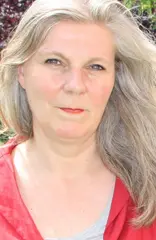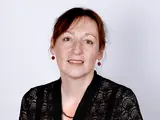The subject of this indexing are the maps of Africa and Asia published until 1945 - a total of 35,349 map sheets - as a central core holdings of the Perthes Collection preserved by the Gotha Research Library of the University of Erfurt. The online presentation and permanent storage of the digital copies will take place in the Digital Historical Library Erfurt/Gotha, which is maintained and hosted by the Thuringian University and State Library Jena (ThULB). In this way, the maps will be made accessible to scholars from all over the world and, in addition, presented to a broad interested public both analogue in the form of events and digitally in the form of a scholarly blog.
The maps of Africa and Asia in the Perthes Collection represent a central reference stock for the international cartography of Africa and Asia. They were not only politically relevant, but at the same time central working tools of the publishing house Justus Perthes Gotha, which was active worldwide in the 19th and 20th centuries and where one of the most important globally oriented map publishing archives in Europe was created. As an outstanding testimony to the national cultural heritage, this collection was acquired by the Free State of Thuringia in 2003 with the support of the "Kulturstiftung der Länder" and has since been preserved and made accessible.
Although the maps as part of the collection have been conserved at great expense, they have only been superficially indexed to date, so that research has so far been time-consuming. The Perthes Collection's holdings of maps of Africa and Asia in particular, however, hold enormous potential that extends into the most diverse historical disciplines and subject areas. At the same time, the maps provide insights into fundamental questions about the practice of mapping as a cultural technique and the technologies of modern map production.
The digitisation project thus also prepares the ground for the "small subject" of cartographic history, which is currently inscribing itself in cultural studies and here above all in visual, media and literary studies, as well as in the first beginnings of historical studies. In addition to these diverse approaches to the collection, the decisive specificity of the project is that the selected map holdings work towards current research interests and dynamics that address both colonial contexts of European collections and bodies of knowledge and bring new postcolonial historiographies to the fore.
"We are very pleased about the BMBF's approval," say Iris Schröder and Petra Weigel. "This will now give us the chance to make the valuable maps of Africa and Asia that we preserve and research in Gotha available to scholars worldwide, while at the same time making the Perthes Collection even better known and literally taking it around the world."



